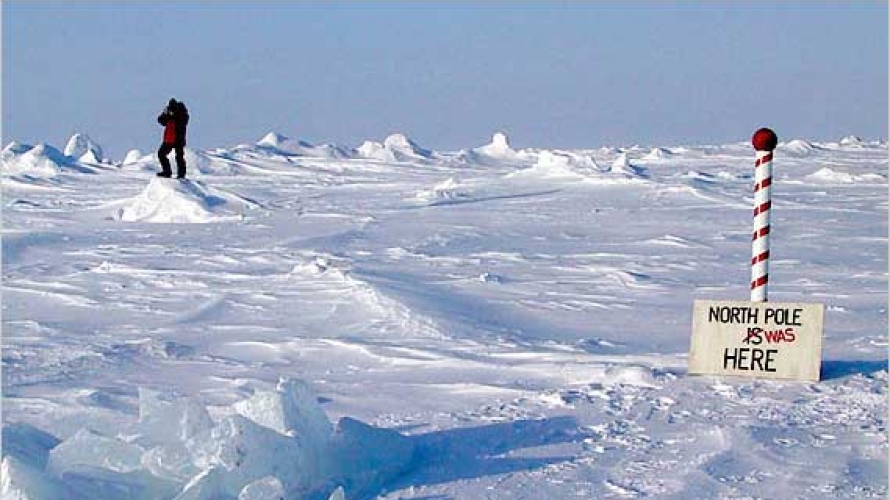- The Arctic is just like the South
Many people look at Arctic images and wonder about penguins. Have you eaten polar bears?
Of course both poles represent the harshest environments, with very cold temperatures during the winter months, both of which spend long weeks only in total darkness or in a daytime. In addition to the fact that many do not know that polar bears live in the Arctic and the penguins in the south, the poles are quite different in the population and at the policy level.
The Antarctic is located on a continent with no native inhabitants, while the Arctic is an ocean surrounded almost entirely by coastal states such as Russia, Canada, Norway, Denmark (via Greenland), the United States (via Alaska) That there are residents have lived in this area for a long time.
The rules, laws and practices that define the two regions are quite different. For example, the Antarctic under a treaty is subject to a broad outline where what can be done there (scientific research first). And what should not be done (resource development and military tasks). In the Arctic, the activity is subject to State treaties and international maritime law, in the sense that everything that can be done in the oceans can be done in the Arctic, no one can claim ownership of the Antarctic, while all countries bordering the Arctic can do so .
- Canada, Russia and Denmark are all trying to capture the Arctic
Recent reports indicate that the governments of Canada and Russia are competing for control of that region, as when Africa and the legacy of the Ottoman Caliphate were divided by the colonial powers. But the efforts of Canada and Russia to determine their control over the Arctic must be subject to a clear international process in accordance with the provisions of the 1982 UN Convention on the Law of the Sea. Both countries have the right to exploit resources such as oil, gas, minerals and anything else on the ocean floor within 200 nautical miles off its coast.
States have the right to determine whether there is an extended continental shelf, that is, a natural extension of the area of the State under water, which means extending the 200 nautical mile along the continental shelf. The conflicting states are proceeding as stipulated in international law, so there is no room for conflict.
- There is no international law regulating the Arctic
Arctic waters and surrounding waters are subject to the same international laws that apply to all other oceans. As the ice there begins to melt, water remains international water. (By the way, we have lost more than 20,000 square kilometers of ice annually since 1981)
As water temperatures rise in these areas, new fish and mammalian groups will move into Arctic waters, which means that international fishing fleets will have the right to fish in those areas. In general, the collapse of the world's fishing market is blamed for poor regulations, including poor enforcement of fishing limits. The problems of the fishing market could lead to the Arctic, making international challenges even more difficult
Congratulations @abdonajah! You have completed some achievement on Steemit and have been rewarded with new badge(s) :
Click on any badge to view your own Board of Honor on SteemitBoard.
For more information about SteemitBoard, click here
If you no longer want to receive notifications, reply to this comment with the word
STOPDownvoting a post can decrease pending rewards and make it less visible. Common reasons:
Submit
Downvoting a post can decrease pending rewards and make it less visible. Common reasons:
Submit